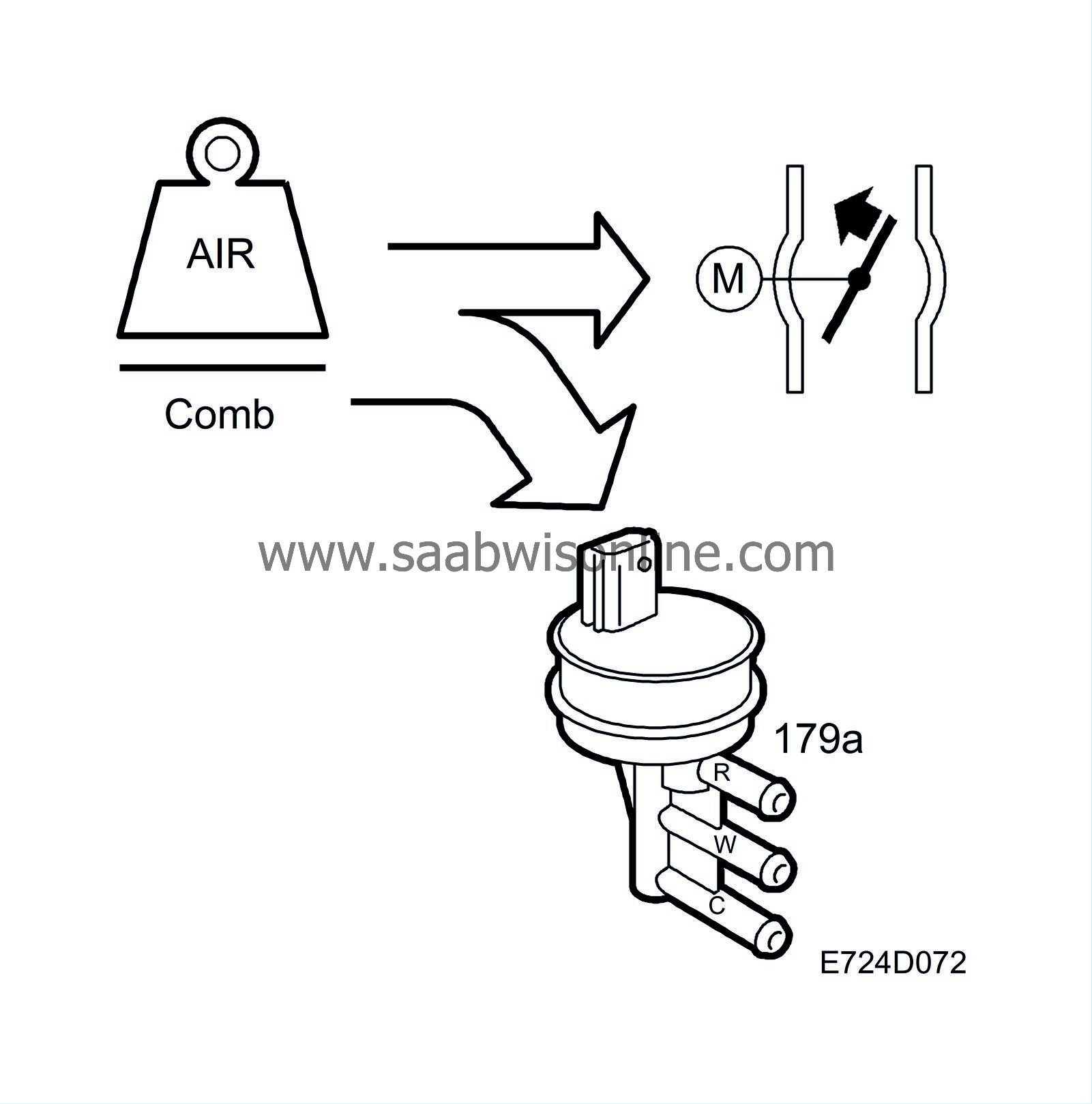Turbo control
| Turbo control |
The solenoid valve is powered from +15 and is grounded from control module pin 13 with a 32 Hz PWM. The turbocharger flow increases as the pulse ratio increases.
When the requested air mass/combustion is too great to be regulated by the throttle alone, the turbo control must supply the excess requirement. The excess is converted to a PWM, which controls the charge air control valve.
The value of the atmospheric absolute air pressure and the temperature of the intake air are used to correct the conversion. At low atmospheric pressures or when the intake air temperature is high, a greater PWM ratio is required to obtain the same air mass/combustion.
The control module then checks that the current air mass/combustion corresponds to that requested. If necessary, the PWM ratio is finely adjusted by multiplying it with a correction factor, charge air adaptation.
The correction factor is adapted at full throttle in the range 2400 - 4500 rpm. The engine speed should be within the adaptation range for more than 2 seconds. Charge air adaptation should be carried out in as high a gear as possible.
The correction factor (charge air adaptation) is stored in the control module memory and is always used to calculate the PWM ratio.
This is to ensure that the current air mass/combustion will correspond with the requested as soon as possible after a change in load. The limit for adaptation is 100%.
BioPower
The variant with 2.3 litre engine has a turbo pressure gauge in the main instrument unit. The turbo pressure gauge shows air mass per combustion, which reflects the approximate torque of the engine.
As the engine's torque and accordingly air mass per combustion can be higher during E85 operation, the functionality has been modified slightly. Irrespective of the particular ethanol content of the fuel, the reading of the turbo pressure gauge is adapted to normally show maximum reading when the engine's air mass per combustion has reached the maximum value.
| Diagnostics |
| • |
If there is an open circuit or short circuit to ground, diagnostic trouble code P1662 will be generated.
|
|
| • |
If there is a short circuit to B+, diagnostic trouble code P1663 will be generated.
|
|
| • |
If the air mass per combustion is higher than the requested, diagnostic trouble code P1549 will be generated.
|
|
System reaction to a fault
| • |
Charge air adaptation is blocked.
|
|
| • |
The requested air mass per combustion is limited to 600 mg/c.
|
|
| • |
|
|||||||



